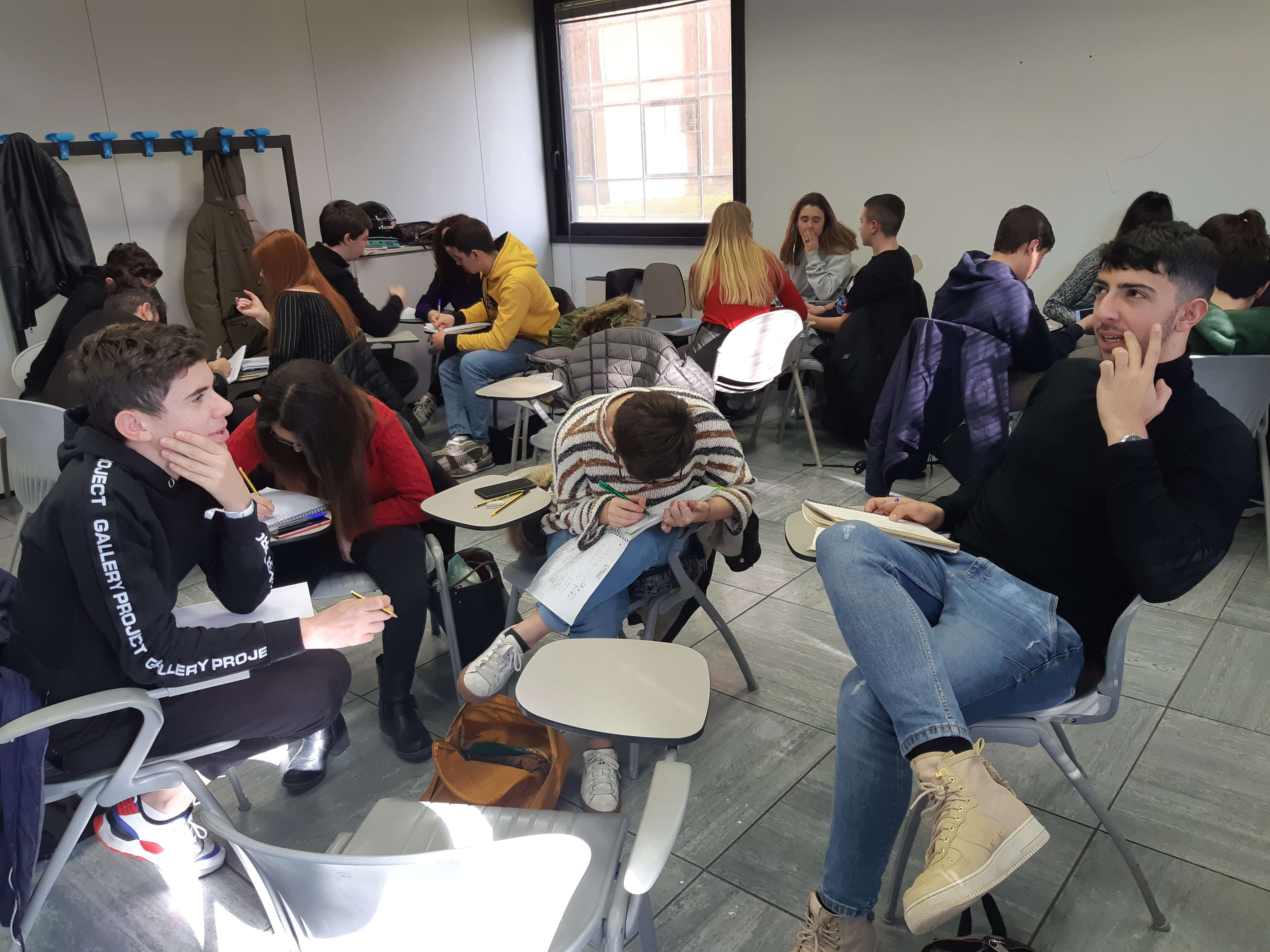Didactical internships on mathematics research for high school students
What is an Hippocampe internship?
The Hippocampe internship born in 2005 in Marseille the IREM (Institute de Recherche en Enseignement des Mathématiques) in collaboration with the faculty of sciences of Luminy (Aix-Marseille Université) and the current I2M (Institute de Mathématiques de Marseille).
The goal of Hippocampe internships is to avoid the disaffection of the high school students towards the sciences and, more generally, the popularization of the scientific culture. The students can experiment in first person the work of the researcher in an internship of three days, empirically building their knowledge on math topics proposed, to acquire them and transmit.
The first Hippocampe stages in Italy took place in 2016 the at the mathematics department of the Roma Tre University as a PLS project of the department, from the 2017-2018 school year the laboratories are part of the offer of alternanza scuola-lavoro of the Roma Tre University.
Short description
During each internship, the department receives an high school class (20-30 students) for three consecutive days to initiate students to mathematics research. After the presentation of some research themes, the students are guided to elaborate their answers on presented questins working in small groups, discussing and comparing the experimental results under the guidance of a small team of tutors. At the end of the three days the students will exhibitto to the public of professors, students and researchers of the hosting department the scientific posters containing their results.
|
|
| A group of students presenting their results to the other groups |
Goals
Students involved in a Hippocampe internship experience for the first time a different method for the study of mathematics. They become involved in the process of knowledge production building the formalism they need to express the problem and its solution. Furthermore, the process of understanding the arguments advance together with the research. This make the student feel the results as its own discovery instead of a solution to accept without critical spirit.
Each stage have the goal to develop the following skills of the students:
- Initiate an independent scientific research;
- Develop new methods of study in order to understand new notions;
- Having a critical approach to their own results;
- Learn how to communicate, in written and oral form, a technical problem and its possible solutions.
Internships:
The IREM experience in Marseille
Initially born as a project within the department ofbiology, the first Hippocampe stage of mathematics took placeat the IREM in Aix-Marseille in 2005 with an ever-increasing numberof internships every year.
The main partners of the laboratory Pythéas are theRectorate and the Faculty of Sciences of the Aix-Marseille Université,the Institute de Mathematiqus de Marseille (I2M) from whichmost of the supervisors who take part come fromto internships and the CIRM (Center International de Rencontres Mathématiques) thatoccasionally welcomes the poster presentation sessionsduring the conferences involving external researchers comingother universities and allowing students to interact withforeign professors and researchers.
Since 2006, some internships have also been offered to schoolsprimary and Ecole de the Deuxieme Chance de Marseille (school intended forrecovery of young people between 18 and 25 years out of the systemscholastic without diploma or qualification).
From the IREM experience in Marseille, the internship modelHippocampe has spread to France and, to date, internships comealso organized by the IREM of Brest (since 2007), of Lyon (since2009), Toulouse and Nice (from 2011).
In 2016 for the first time in Italy (and outside of France) yestwo Hippocampe stages are held at the Roma Tre University.
| |
| Two students explain their research to Prof. Bessi |
How an Hippocampe stage takes place
Each stage is followed by a team of supervisors consisting of one responsible (generally a teacher, a researcher or a doctoral student) who will propose the subject of the internship to others supervisors (which may include students form teaching masters). The internship is scheduled in three days (morning and afternoon) according to the following model:
- First day: students are welcomed at the laboratory (at the university) together with a briefing on the university studies. Then, the schedule of the internship is presented together with the research themes. During this presentation some basic definitions and questions are given in order to provide ideas and tools to start their researches. Once you have chosen which theme develop, students are divided into groups of 4-6 students and the day is dedicate to research.
- Second day: after another morning of research, in the afternoon each group prepares a short 10 minute talk to present their results to the colleagues. Then each group start to correct any problems occurred during the exposure (communication or conceptual ones) and elaborate any emerged observation.
- Third day: the morning is destined to the preparation of the posters and their presentation. At the end of the morning researchers, professors and students of the department partecipate to this presentation interacting with students.
Educational path

The supervisor covers the role of research guide throughout the internship by suggesting to groups directions to be covered and testing the real understanding and consistency of the discoveries. The supervisor is a verifying and stimulating tool for students' discoveries by proposing questions that help to understand the topic. Moreover, the supervisor helps students to prevent errors or heading too far from the chosen topic. The internship does not provide any form of frontal teaching. The role of the supervisor is to stimulate the students without forcing them to follow established reasoning and leaving them complete freedom even to fall into error; the understanding of the cause of the error and its correction is part of the learning process. At the end of the internship, the student will then elaborate his method of understanding that can then be applied to the study of mathematics and scientific subjects in general.